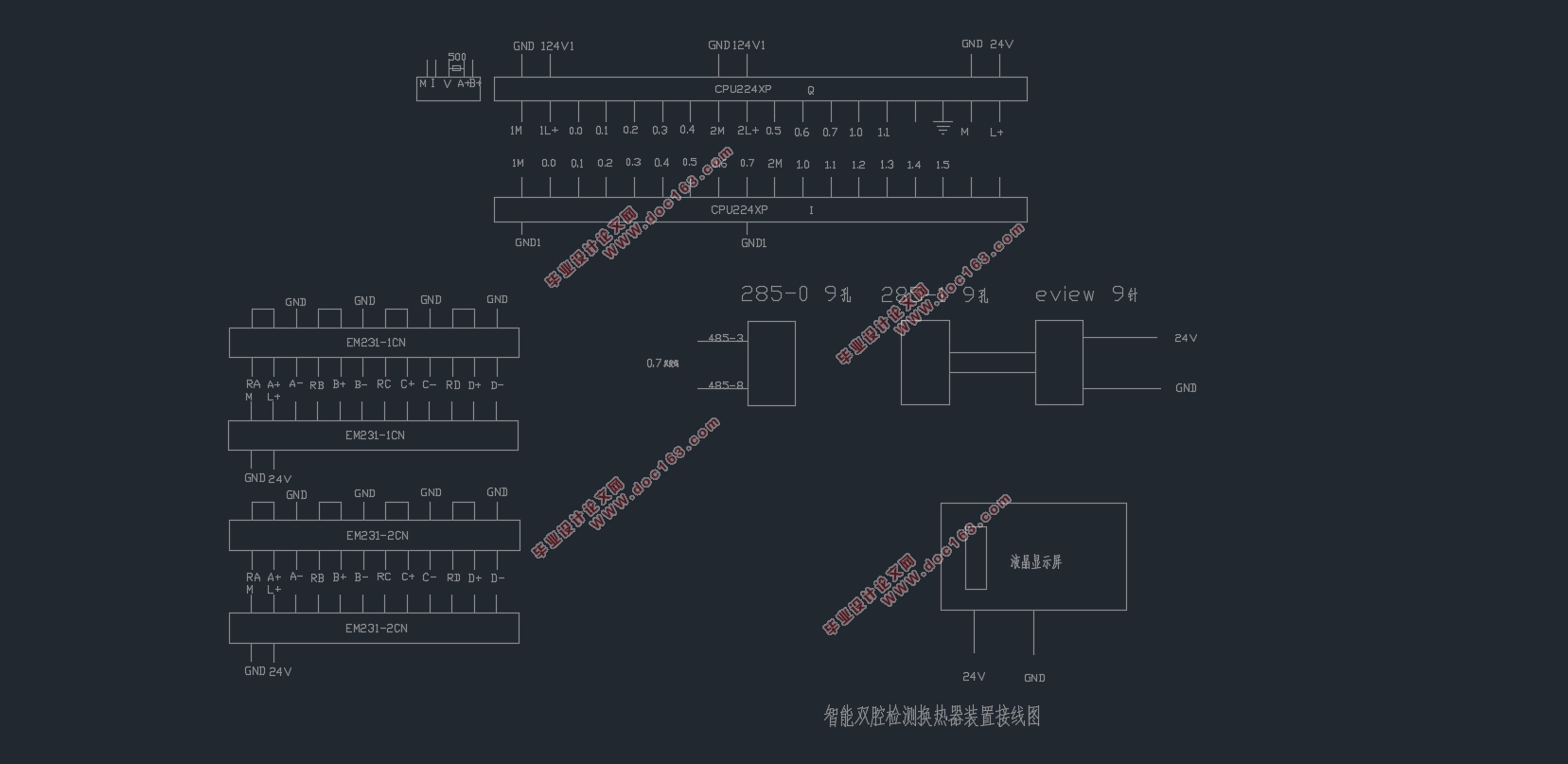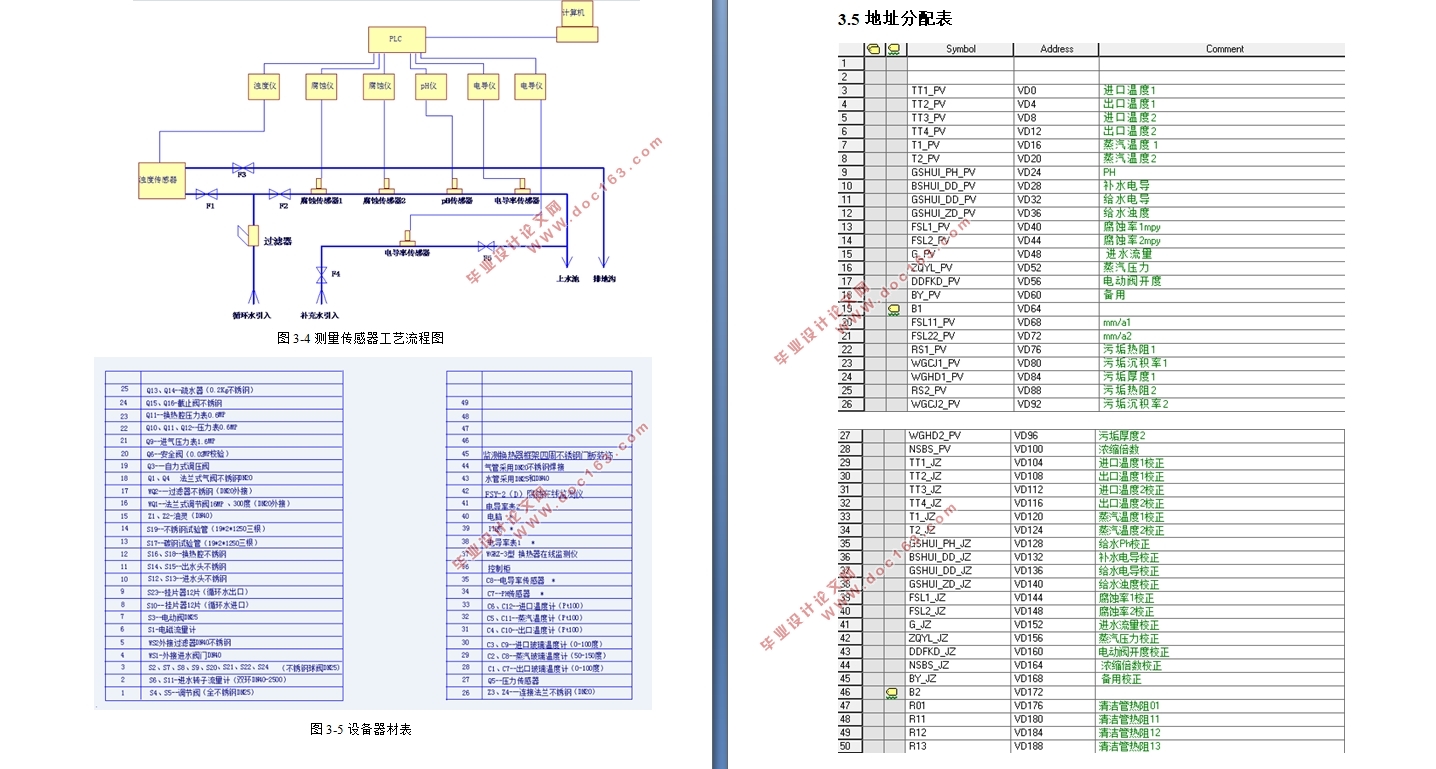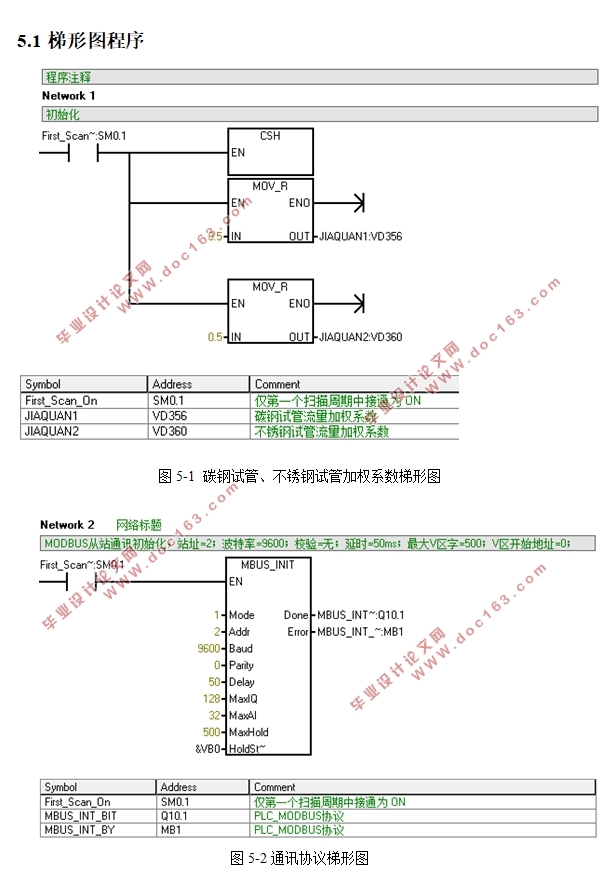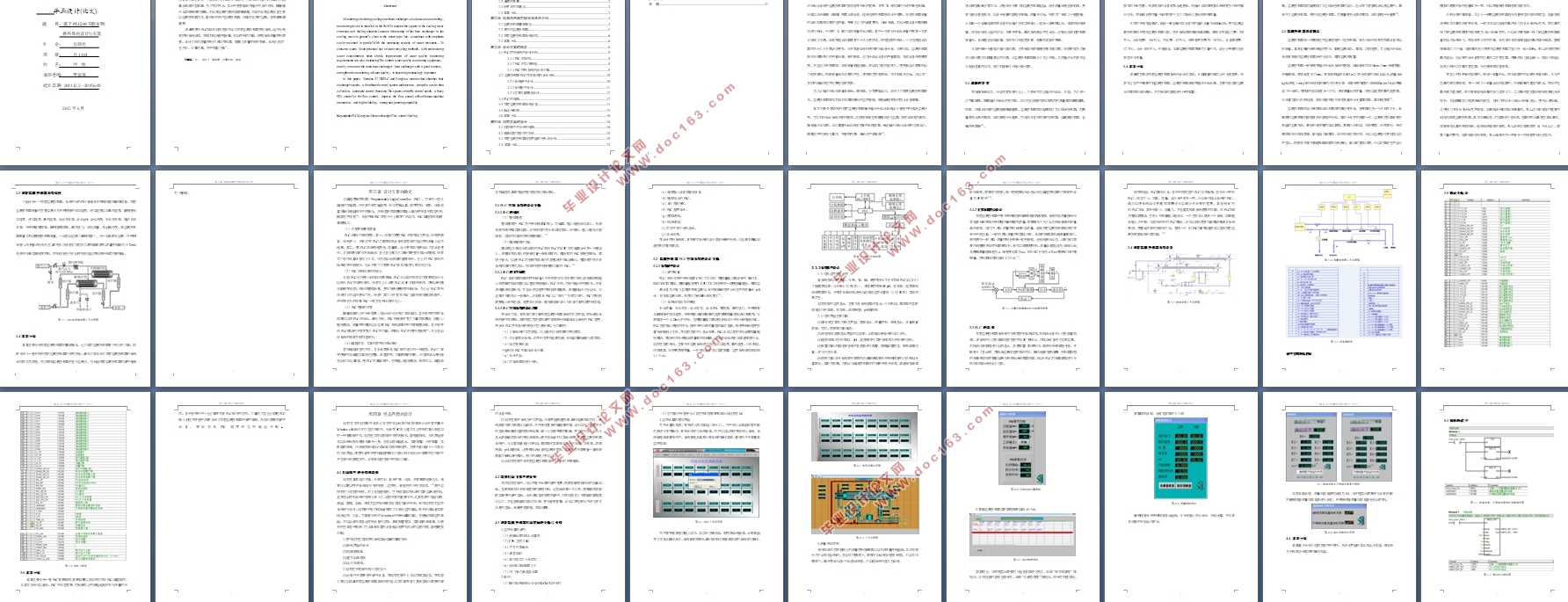基于PLC200双腔监测换热器设计(附CAD接线图,PLC程序)

1.无需注册登录,支付后按照提示操作即可获取该资料.
2.资料以网页介绍的为准,下载后不会有水印.资料仅供学习参考之用.
密 惠 保
基于PLC200双腔监测换热器设计(附CAD接线图,PLC程序)(任务书,开题报告,论文说明书11000字,CAD接线图,PLC程序)
摘要
监测换热器实际上是循环冷却水的监测热交换器,通常作为监测设备放置在工作车间,被用来实时监控冷却塔的结垢以及腐蚀程度。通常在冷却塔周围的回水管线上都会安装一个监测热交换器,特殊情况下并联安装在重点冷却器上。随着水资源日益紧缺,为了节约用水,实际中更多地采用循环用水的方法,随着循环水浓缩倍缩的提高,对水质监测的要求也越来越高。目前的水质监测设备主要以监测换热器为主,能很好的利用监测换热器,加强对水质的监测,显得越来越重要。
该课题使用PLC200和组态王软件运行双腔监测换热器控制系统,运用分布式控制系统结构,完成对现场数据采集、自动控制的功能。根据系统流量控制需要,设计了针对流量控制的PID控制器,提高了流量控制的效果。系统人机交互性好、可靠性高、抗干扰能力强[1]。
关键词:PLC 组态王 换热器 流量控制 结垢
PLC200based on monitoring of dual-chamber heat exchanger
Abstract
Monitoring circulating cooling water heat exchanger,also known as monitoring,monitoring device is installed in the field.To monitor the system in the cooling tower corrosion and fouling situation.Location Monitoring of the heat exchanger in the cooling tower is generally close to the return pipe line,sometimes with emphasis cooler mounted in parallel.With the increasing scarcity of water resources,To conserve water,More practical use of water recycling methods,with recirculating water concentration times shrink improvement of water quality monitoring requirements are also increasing.The current water quality monitoring equipment,mainly to monitor the main heat exchanger,heat exchanger with a good monitor,strengthen the monitoring of water quality,is becoming increasingly important.
In this paper,Siemens S7-200PLC and Kingview monitor dual-chamber heat exchanger system,a distributed control system architecture,complete on-site data collection,automatic control functions.The system of traffic control needs,a fuzzy PID controller for flow control,improve the flow control effect.Human-machine interaction,and high reliability,strong anti-jamming capability.
Keywords:PLC;Kingview;Heat exchanger;Flow control;Scaling




目录
摘要 I
Abstract II
第一章 绪论 1 [资料来源:THINK58.com]
1.1监测换热器在国内使用情况 2
1.2课题的背景 2
1.3研究目的和意义 3
1.4本章小结 3
第二章 监测换热器控制系统总体介绍 4
2.1监测换热器基本概念 4
2.2常用的监测换热器 5
2.3双腔监测换热器系统结构 6
2.4本章小结 6
第三章 设计方案的确定 8
3.1 PLC控制系统的设计分析 9
3.1.1 PLC的结构 9
3.1.2 PLC的工作原理 9
3.1.3 PLC控制系统的设计步骤 9
3.2 监测换热器PLC控制系统的设计分析 10
3.2.1系统硬件设计 10
3.2.2系统软件设计 11
3.2.3主要功能模块设计 12
3.3 PLC的选择 12
3.4双腔监测换热器系统设备 13
3.5地址分配表 15
3.6本章小结 16 [资料来源:http://think58.com]
第四章 组态界面的设计 18
4.1组态软件的介绍和选择 18
4.2选择组态王软件的好处 19
4.3双腔监测换热器组态界面的分析与介绍 19
4.4 本章小结 24
第五章 软件部分的设计 25
5.1梯形图程序 25
5.2调试原理 26
5.3调试过程 27
总 结 29
参考文献 30
致 谢 31 [资料来源:http://think58.com]
